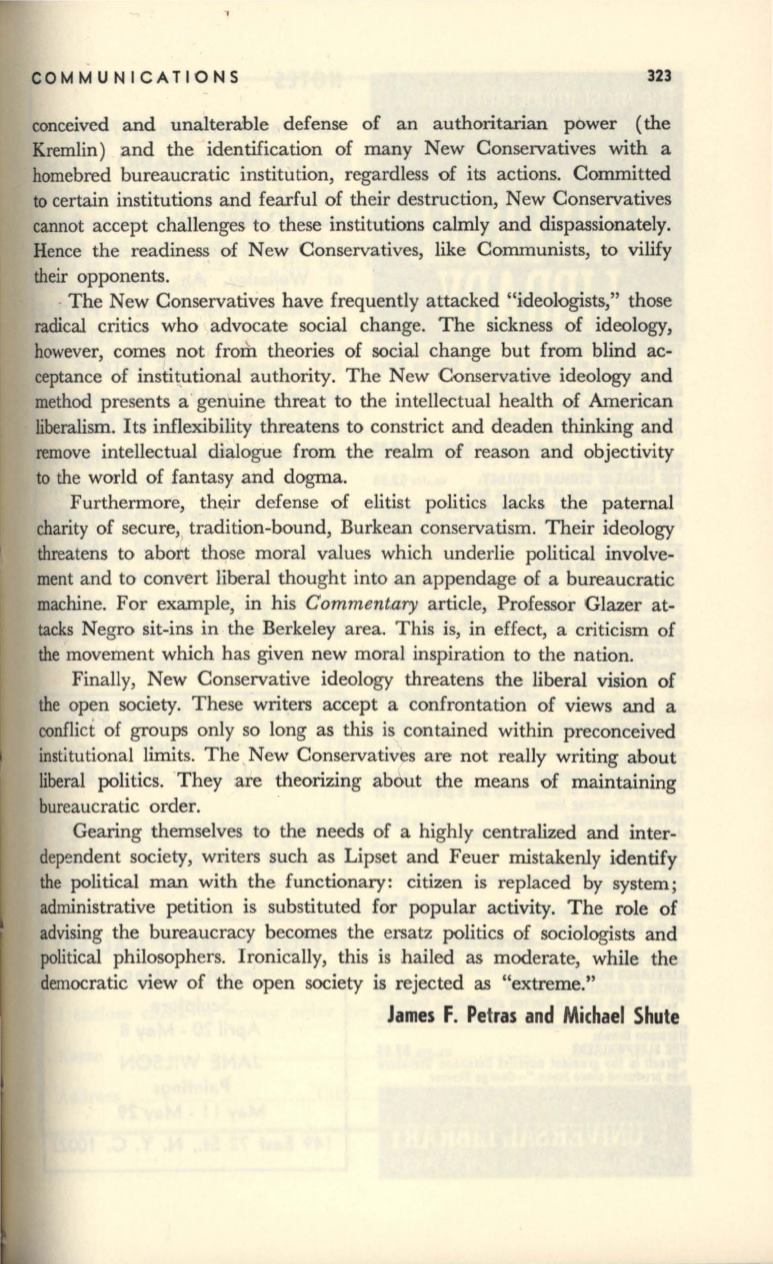
COMMUNICATIONS
323
conceived and unalterable defense of an authoritarian power (the
Kremlin) and the identification of many New Conservatives with a
homebred bureaucratic institution, regardless of its actions. Committed
to
certain institutions and fearful of their destruction, New Conservatives
cannot accept challenges to these institutions calmly and dispassionately.
Hence the readiness of New Conservatives, like Communists, to vilify
their opponents.
The New Conservatives have frequently attacked "ideologists," those
radical critics who advocate social change. The sickness of ideology,
however, comes not from theories of social change but from blind ac–
ceptance of institutional authority. The New Conservative ideology and
method presents a ' genuine threat to the intellectual health of American
liberalism. Its inflexibility threatens to constrict and deaden thinking and
remove intellectual dialogue from the realm of reason and objectivity
to
the world of fantasy and dogma.
Furthermore, their defense of elitist politics lacks the paternal
charity of secure, tradition-bound, Burkean conservatism. Their ideology
threatens to abort those moral values which underlie political involve–
ment and to convert liberal thought into an appendage of a bureaucratic
machine. For example, in his
Comment.ary
article, Professor Glazer at–
tacks Negro sit-ins in the Berkeley area. This is, in effect, a criticism of
the movement which has given new moral inspiration to the nation.
Finally, New Conservative ideology threatens the liberal vision of
the open society. These writers accept a confrontation of views and a
oonflict of groups only so long as this is contained within preconceived
inst;tutional limits. The New Conservatives are not really writing about
liberal politics. They are theorizing about the means of maintaining
bureaucratic order.
.
Gearing themselves to the needs of a highly centralized and inter–
dependent society, writers such as Lipset and Feuer mistakenly identify
the political man with the functionary: citizen is replaced by system;
administrative petition is substituted for popular activity. The role of
advising the bureaucracy becomes the ersatz politics of sociologists and
political philosophers. Ironically, this is hailed as moderate, while the
democratic view of the open society is rejected as "extreme."
James F. Petras and Michael Shute


